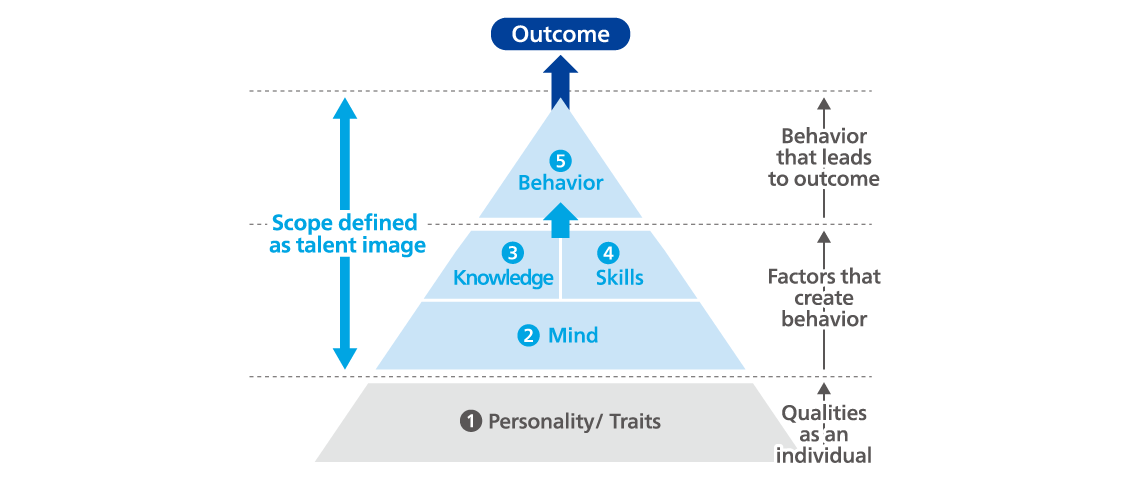(1) Personality/Traits
Personality/Traits refers to characteristics such as motivation, values, and emotions born or established in early childhood. An individual is affected by innate qualities and the environment experienced up to adulthood. In the digital domain, where uncertainty is high and the situation is changing rapidly, talent who have characteristics such as interest in new environments, risk sensitivity, and tolerance to ambiguity are likely suitable.
(2) Mindset
Mindset refers to consciousness, motivation, attitude, and values that appear on the surface as words, facial expressions, and movements. A mindset is not in itself visible and is thus measured by the duration of an exhibited behavior. In the digital domain where it is necessary to produce results for new value creation, talent with a mindset exemplified by customer oriented, a challenging spirit, teamwork, etc., are likely suitable.
(3) Knowledge
Knowledge refers to information held by an individual about a particular matter. It is measured by a person’s proficiency in terms of an aptitude for delivering behavior. Examples include an understanding of industry information and customers. Especially in the digital domain, a high antenna for collecting cutting-edge information is important.
(4) Skills
Skills refer to the ability to capture and process information and accomplish tasks. As with (3) Knowledge, skills are measured by a person’s proficiency in terms of an aptitude for delivering behavior. Examples include information gathering & research ability and hypothesis-building ability. In the digital domain where uncertainty is high, a hypothesis-building ability based on information that is unusually inaccurate and small in quantity is required.
(5) Behavior
Behavior refers to intentional activities that are carried out by comprehensively utilizing knowledge, skills, and mindset. It is measured by the degree of performance and the outcome achieved. Defined behaviors include demonstrating a problem finding ability and insightfulness as well as thinking and proposing ideas using information gathering & research skills and industry knowledge. In the digital domain, there is high demand for a strong behavioral pattern of acting swiftly and repeatedly and thereby ultimately bringing about sought-after outcomes.



